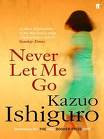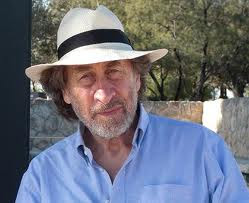
This is a strange and wonderful little novel.
It follows the apparently ordinary lives of three children in an English boarding school in the 1990s, and their slow growth into adulthood. Much of the charm of the book inheres in its accurate depiction of the small battles of childhood, and the awkwardness of adolesence. However, as the book goes on, it becomes clear that this is not an ordinary school, and that these are not the 1990s as we know them.
The children seem to have no parents, and there is a constant focus on their health, as well as a sort of vague sense that they have a special destiny.
Chaps, they are clones. It’s a clone story. Awesome.
Once you leave the boarding school you are a carer for some years, looking after those who have already begun to donate vital organs. Then you become a donor yourself. Most people do not make it past their fourth donation.
What makes this book so compelling is first of all the interesting and believable characters (there is a sort of long term love triangle); secondly, the slow revelation of what is going on; and thirdly, the calm and unspectacular narrative voice, that somehow seems to make the story all the more grisly. I will never feel the same about the phrase “a little bit of bleeding.”
Here, for example, the narrator, Kathy, is caring for her boyfriend Tommy after his second donation:
A mix-up at the clinic had meant Tommy having to re-do three of the tests. This had left him feeling pretty woozy, so when we finally set off for Littlehampton towards the end of the afternoon, he began to feel carsick and we had to keep stopping to let him walk it off.
Somehow Littlehampton makes it all so much grimmer.
Kathy and Tommy had hoped there might be some chance of a deferral. Incredibly depressingly, they don’t even seem to think about exemption, but pin all their hopes on a deferral. They find out this is not possible, and depressingly, accept it. Tommy completes, as they call it, after his third donation, and Kathy accepts this. This is pretty much the end of the novel.
I was gutted. I guess because I cared about the characters, I also felt really irritated with them. I had really, really wanted the book to suddenly get all action-packed, where all the clones would rise up and kill their human overlords. I wouldn’t even have minded if we had to have some car chases.
I struggle to believe that human beings (clones or not) could be so effectively brainwashed as to accept their own slow and painful deaths. I don’t think so. I hope not. But this novel of course also operates on another level, that of myth.
M John Harrison for the Guardian puts it as follows:
This extraordinary and, in the end, rather frighteningly clever novel isn’t about cloning, or being a clone, at all. It’s about why we don’t explode, why we don’t just wake up one day and go sobbing and crying down the street, kicking everything to pieces out of the raw, infuriating, completely personal sense of our lives never having been what they could have been.
I am not sure what I think of that.


